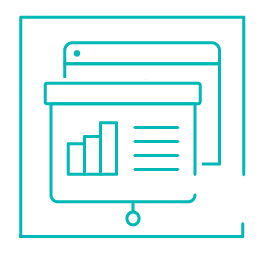6 training material found
A showcase of Data Analysis in Python and R: A case study using COVID-19 data
In all fields of research we are being confronted with a deluge of data; data that needs cleaning and transformation to be used in further analysis. This webinar demonstrates the effective use of programming tools for an initial analysis of COVID-19 datasets, with examples using both R and...
A showcase of Data Analysis in Python and R: A case study using COVID-19 data
https://intersect.org.au/training/course/coding002
https://dresa.org.au/materials/a-showcase-of-data-analysis-in-python-and-r-a-case-study-using-covid-19-data
In all fields of research we are being confronted with a deluge of data; data that needs cleaning and transformation to be used in further analysis. This webinar demonstrates the effective use of programming tools for an initial analysis of COVID-19 datasets, with examples using both R and Python.
Cleaning up a dataset for analysis
Using Jupyter lab for interactive analysis
Making the most of the tidyverse (R) and pandas (python)
Simple data visualisation using ggplot (R) and seaborn (python)
Best practices for readable code
The webinar has no prerequisites.
training@intersect.org.au
Intersect Australia
Python, R
Start Coding without Hesitation: Programming Languages Showdown
Programming is becoming more and more popular, with many researchers using programming to perform data cleaning, data manipulation, data analytics, as well as creating publication quality plots. Programming can be really beneficial for automating processes and workflows. In this webinar, we are...
Keywords: Julia, Matlab, Python, R
Start Coding without Hesitation: Programming Languages Showdown
https://intersect.org.au/training/course/coding001
https://dresa.org.au/materials/start-coding-without-hesitation-programming-languages-showdown
Programming is becoming more and more popular, with many researchers using programming to perform data cleaning, data manipulation, data analytics, as well as creating publication quality plots. Programming can be really beneficial for automating processes and workflows. In this webinar, we are exploring four of the most popular programming languages that are widely used in academia, namely Python, R, MATLAB, and Julia.
Why use Programming
An overview of Python, R, MATLAB, and Julia
Code comparison of the four programming languages
Popularity and job opportunities
Intersect’s comparison
General guidelines on how to choose the best programming language for your research
The webinar has no prerequisites.
training@intersect.org.au
Intersect Australia
Julia, Matlab, Python, R
Cleaning Biodiversity Data in R
This book is a practical guide for cleaning geo-referenced biodiversity data using R. It focuses specifically on the processes and challenges you’ll face with biodiversity data. As such, this book isn’t a general guide to data cleaning but a targeted resource for those working with or interested...
Keywords: R, Data cleaning, Biodiversity data, Rstats, Ecology, Reproducibility, Beginner R coding, data wrangling, Coding
Cleaning Biodiversity Data in R
https://cleaning-data-r.ala.org.au/
https://dresa.org.au/materials/cleaning-biodiversity-data-in-r
This book is a practical guide for cleaning geo-referenced biodiversity data using R. It focuses specifically on the processes and challenges you’ll face with biodiversity data. As such, this book isn’t a general guide to data cleaning but a targeted resource for those working with or interested in ecology, evolution, and geo-referenced biodiversity data.
Atlas of Living Australia support@ala.org.au
Atlas of Living Australia
R, Data cleaning, Biodiversity data, Rstats, Ecology, Reproducibility, Beginner R coding, data wrangling, Coding
WORKSHOP: Unlocking nf-core - customising workflows for your research
This record includes training materials associated with the Australian BioCommons workshop Unlocking nf-core - customising workflows for your research’. This workshop took place over two, 3 hour sessions on 18-19 May 2023.
Event description
Processing and analysing omics datasets poses many...
Keywords: Bioinformatics, Workflows, Nextflow, nf-core
WORKSHOP: Unlocking nf-core - customising workflows for your research
https://zenodo.org/records/8026170
https://dresa.org.au/materials/workshop-unlocking-nf-core-customising-workflows-for-your-research-1584ff39-e007-4422-9fd5-4e407df6b6c5
This record includes training materials associated with the Australian BioCommons workshop Unlocking nf-core - customising workflows for your research’. This workshop took place over two, 3 hour sessions on 18-19 May 2023.
Event description
Processing and analysing omics datasets poses many challenges to life scientists, particularly when we need to share our methods with other researchers and scale up our research. Public and reproducible bioinformatics workflows, like those developed by nf-core, are invaluable resources for the life science community.
nf-core is a community-driven effort to provide high-quality bioinformatics workflows for common analyses including, RNAseq, mapping, variant calling, and single cell transcriptomics. A big advantage of using nf-core workflows is the ability to customise and optimise them for different computational environments, types and sizes of data and research goals.
This workshop will set you up with the foundational knowledge required to run and customise nf-core workflows in a reproducible manner. On day 1 you will learn about the nf-core tools utility, and step through the code structure of nf-core workflows. Then on day 2, using the nf-core/rnaseq workflow as an example, you will explore the various ways to adjust the workflow parameters, customise processes, and configure the workflow for your computational environment.
This workshop event and accompanying materials were developed by the Sydney Informatics Hub, University of Sydney in partnership with Seqera Labs, Pawsey Supercomputing Research Centre, and Australia’s National Research Education Network (AARNet). The workshop was enabled through the Australian BioCommons - Bring Your Own Data Platforms project (Australian Research Data Commons and NCRIS via Bioplatforms Australia).
Materials
Materials are shared under a Creative Commons Attribution 4.0 International agreement unless otherwise specified and were current at the time of the event.
Files and materials included in this record:
Event metadata (PDF): Information about the event including, description, event URL, learning objectives, prerequisites, technical requirements etc.
Index of training materials (PDF): List and description of all materials associated with this event including the name, format, location and a brief description of each file.
nfcore_Schedule: Schedule for the workshop providing a breakdown of topics and timings
nfcore_Q_and_A: Archive of questions and their answers from the workshop Slack Channel.
Materials shared elsewhere:
This workshop follows the accompanying training materials that were developed by the Sydney Informatics Hub, University of Sydney in partnership with Seqera Labs, Pawsey Supercomputing Research Centre, and Australia’s National Research Education Network (AARNet).
https://sydney-informatics-hub.github.io/customising-nfcore-workshop
Melissa Burke (melissa@biocommons.org.au)
Samaha, Georgina (orcid: 0000-0003-0419-1476)
Willet, Cali (orcid: 0000-0001-8449-1502)
Hakkaart, Chris (orcid: 0000-0001-5007-2684)
Beecroft, Sarah (orcid: 0000-0002-3935-2279)
Stott, Audrey (orcid: 0000-0003-0939-3173)
Ip, Alex (orcid: 0000-0001-8937-8904)
Cooke, Steele
Bioinformatics, Workflows, Nextflow, nf-core
WORKSHOP: R: fundamental skills for biologists
This record includes training materials associated with the Australian BioCommons workshop ‘R: fundamental skills for biologists’. This workshop took place over four, three-hour sessions on 1, 8, 15 and 22 June 2022.
Event description
Biologists need data analysis skills to be able to...
Keywords: Bioinformatics, Analysis, Statistics, R software, RStudio, Data visualisation
WORKSHOP: R: fundamental skills for biologists
https://zenodo.org/records/6766951
https://dresa.org.au/materials/workshop-r-fundamental-skills-for-biologists-81aa00db-63ad-4962-a7ac-b885bf9f676b
This record includes training materials associated with the Australian BioCommons workshop ‘R: fundamental skills for biologists’. This workshop took place over four, three-hour sessions on 1, 8, 15 and 22 June 2022.
Event description
Biologists need data analysis skills to be able to interpret, visualise and communicate their research results. While Excel can cover some data analysis needs, there is a better choice, particularly for large and complex datasets.
R is a free, open-source software and programming language that enables data exploration, statistical analysis, visualisation and more. The large variety of R packages available for analysing biological data make it a robust and flexible option for data of all shapes and sizes.
Getting started can be a little daunting for those without a background in statistics and programming. In this workshop we will equip you with the foundations for getting the most out of R and RStudio, an interactive way of structuring and keeping track of your work in R. Using biological data from a model of influenza infection, you will learn how to efficiently and reproducibly organise, read, wrangle, analyse, visualise and generate reports from your data in R.
Topics covered in this workshop include:
Spreadsheets, organising data and first steps with R
Manipulating and analysing data with dplyr
Data visualisation
Summarized experiments and getting started with Bioconductor
This workshop is presented by the Australian BioCommons and Saskia Freytag from WEHI with the assistance of a network of facilitators from the national Bioinformatics Training Cooperative.
Materials are shared under a Creative Commons Attribution 4.0 International agreement unless otherwise specified and were current at the time of the event.
Files and materials included in this record:
Event metadata (PDF): Information about the event including, description, event URL, learning objectives, prerequisites, technical requirements etc.
Index of training materials (PDF): List and description of all materials associated with this event including the name, format, location and a brief description of each file.
Schedule (PDF): A breakdown of the topics and timings for the workshop
Recommended resources (PDF): A list of resources recommended by trainers and participants
Q_and_A(PDF): Archive of questions and their answers from the workshop Slack Channel.
Materials shared elsewhere:
This workshop follows the tutorial ‘Introduction to data analysis with R and Bioconductor’ which is publicly available.
https://saskiafreytag.github.io/biocommons-r-intro/
This is derived from material produced as part of The Carpentries Incubator project
https://carpentries-incubator.github.io/bioc-intro/
Melissa Burke (melissa@biocommons.org.au)
Freytag, Saskia (orcid: 0000-0002-2185-7068)
Barugahare, Adele (orcid: 0000-0002-8976-0094)
Doyle, Maria
Ansell, Brendan (orcid: 0000-0003-0297-897X)
Varshney, Akriti
Bourke, Caitlin (orcid: 0000-0002-4466-6563)
Conradsen, Cara (orcid: 0000-0001-9797-3412)
Jung, Chol-Hee (orcid: 0000-0002-2992-3162)
Sandoval, Claudia
Chandrananda, Dineika (orcid: 0000-0002-8834-9500)
Zhang, Eden (orcid: 0000-0003-0294-3734)
Rosello, Fernando (orcid: 0000-0003-3885-8777)
Iacono, Giulia (orcid: 0000-0002-1527-0754)
Tarasova, Ilariya (orcid: 0000-0002-0895-9385)
Chung, Jessica (orcid: 0000-0002-0627-0955)
Moffet, Joel
Gustafsson, Johan (orcid: 0000-0002-2977-5032)
Ding, Ke
Feher, Kristen
Perlaza-Jimenez, Laura (orcid: 0000-0002-8511-1134)
Crowe, Mark (orcid: 0000-0002-9514-2487)
Ma, Mengyao
Kandhari, Nitika (orcid: 0000-0002-0261-727X)
Williams, Sarah
Nelson, Tiffanie (orcid: 0000-0002-5341-312X)
Schreiber, Veronika (orcid: 0000-0001-6088-7828)
Pinzon Perez, William
Bioinformatics, Analysis, Statistics, R software, RStudio, Data visualisation
Git for RStudio: streamline your version control workflow
Learn how to use Git and RStudio together for version control and collaboration. We provide hands-on assistance in getting Git and RStudio to communicate effectively. This Masterclass will highlight the importance of making collaboration transparent for everyone, as well as the benefits of using...
Keywords: Git, RStudio, training material
Git for RStudio: streamline your version control workflow
https://youtu.be/dZ_oDeNGDSc
https://dresa.org.au/materials/git-for-rstudio-streamline-your-version-control-workflow
Learn how to use Git and RStudio together for version control and collaboration. We provide hands-on assistance in getting Git and RStudio to communicate effectively. This Masterclass will highlight the importance of making collaboration transparent for everyone, as well as the benefits of using version control to maintain a clear and comprehensive record of project development, and keep your projects organized and reproducible.
*The Sydney Informatics Hub is a Core Research Facility at The University of Sydney, enabling excellence in research* [https://sydney.edu.au/informatics-hub](https://sydney.edu.au/informatics-hub)
sih.training@sydney.edu.au
Deshpande, Nandan (orcid: 0000-0002-0324-8728)
Git, RStudio, training material




